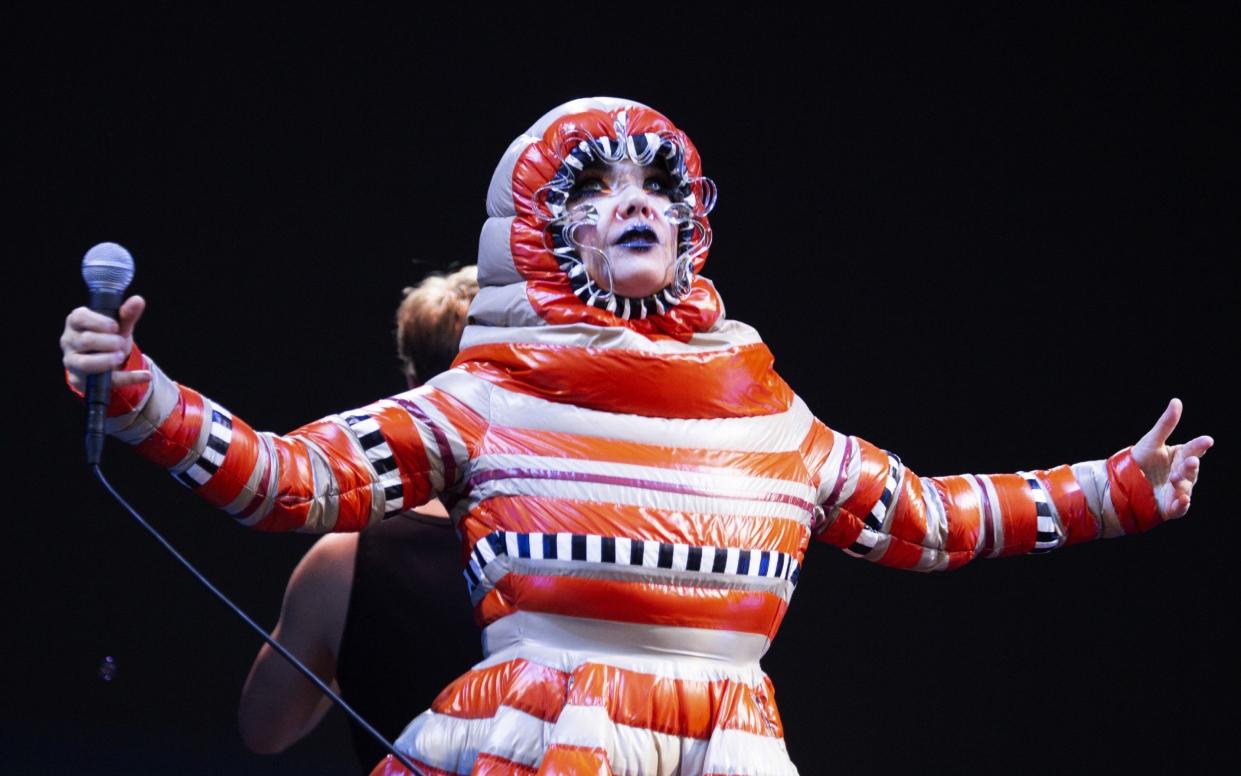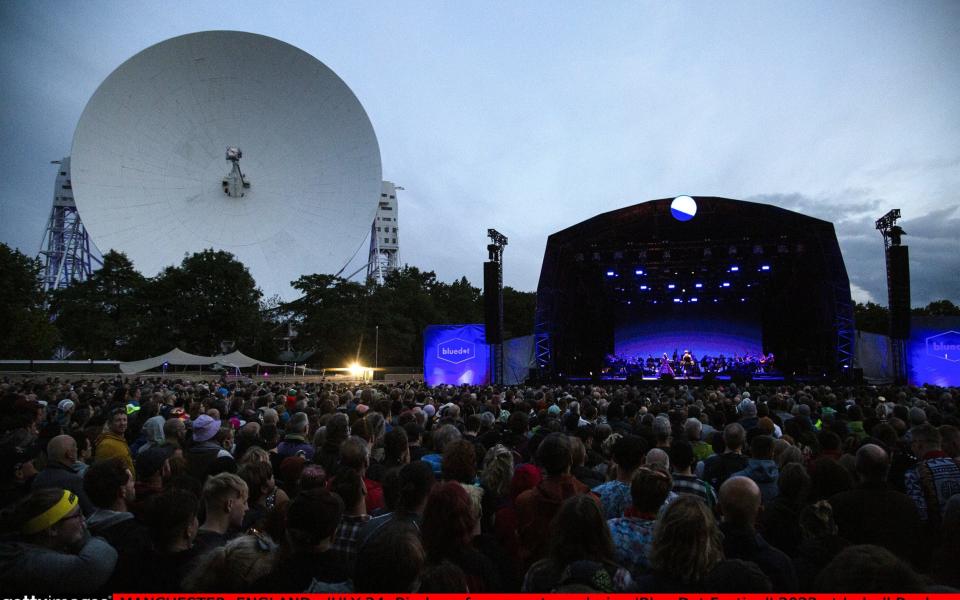Bjork, review: the queen of quirky pop lets rip under a giant telescope dish

Bluedot is where science and music collide. The festival takes place every year (Covid aside) at the Jodrell Bank Observatory in Cheshire in the shadow of the towering 76-metre-wide dish known as the Lovell Telescope. This year, as well as bands, there were talks on antimatter and aliens. Astronaut Tim Peake packed out a tent. Some attendees wandered around in spacesuits. It was tremendous fun. With all this focus on the fabric of the universe, it felt only right that Icelandic singer Björk should close the festival on Sunday night with a challenging show that deconstructed her music and re-assembled it in frontier-pushing ways.
Björk appeared with Manchester’s Hallé Orchestra to play reworked orchestral versions of her repertoire. But although there were numerous moments of celestial beauty, the result wasn’t a total success. Too many tracks shared the same texture: they were slow, their melody lurking just a little too far beneath the swathes of undeniably beautiful strings. For a festival crowd, even one as open-minded as this, it proved a little too much at times. The effect, for the first half of the show at least, was soporific.
The 56-year-old took to the stage beneath Jodrell’s giant saucer looking suitably otherworldly. She wore a shiny, puffy orange ball gown that had a hood pulled tightly over her head. From some angles she looked like a Russian doll, from others a psychedelic space slug. “Thank you, Chhh-eshhh-iyre,” she said in her idiosyncratic Reykjavik-meets-Dalston accent. The problem was that with no rhythm section to give the songs the low deep crunch of bass and percussion that they needed, and with too many unfamiliar tracks that eschewed traditional verse-chorus structures, there wasn’t enough to hold people’s attention. “When does the show start?” shouted a man – unfairly, but to laughs – half an hour into the set.

Perhaps they should have expected this from Björk. As singer in the Sugarcubes and as a solo artist, she has defied convention at every turn. Her genre-pushing music takes in techno and classical, electronica and lush pop, show tunes and global beats. Her first two solo albums, Debut and Post, were among the finest of the 90s, their sonic diversity bound together by her unforgettable delivery, all rolled Rs, conspiratorial whispers and thrilling screams. If anything she has become more avant-garde since, particularly on albums such as 2015’s Vulnicura, from which some of this set was drawn.
When the orchestral songs connected, they were sublime. Hunter, with its throbbing and moody rhythm played staccato on violins, was spellbinding. You could feel the crowd’s energy rise accordingly. The song Isobel soared majestically, and Bachelorette – another pulsating track – was brilliantly dramatic. Meanwhile the moment of resolution in Jóga, just after Björk’s line about solving the riddle of a puzzling emotional landscape, was marked by a spine-tingling cascade of strings. It was fabulous.
Then came the shock. “I probably shouldn’t share this. I actually had Covid five days ago so I didn’t know if I’d hit the high notes,” Björk said before staunchly decrying, “F--- Covid.”
She needn’t have worried on that front. Her voice wasn’t the issue here. This was by any measure a musically adventurous show. It merely lacked those magic ingredients – variety, surprise, some show-stopping visual ingredients – that can make a headline set unforgettable. There were plenty of cosmic elements to this concert but I’d have liked more of the Doctor Who-meets-the very hungry caterpillar vibe. More strangeness. Watching the queen of quirky pop perform beneath one of the world’s largest telescope dishes under a mottled summer sky was certainly an experience. However the concert didn't quite reach the stratospheric heights I'd hoped for.


